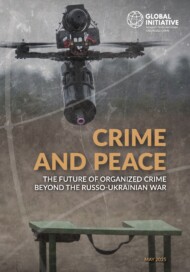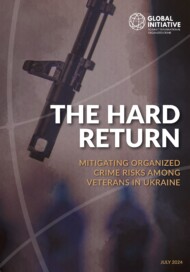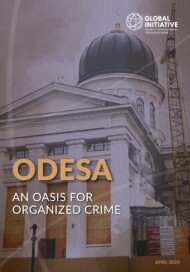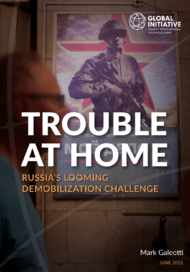Three years after Russia’s full-scale invasion of Ukraine, the prospect of a ceasefire—or even a fragile peace—has thrust policymakers, civil society actors, and donors into a race to anticipate what comes next. Organized crime networks will not wait for the answers.
The cessation of fighting – in whatever shape it may take – will provide fertile conditions for criminal evolution, encompassing demobilized veterans, displaced citizens, excess weapons, and vast reconstruction funds.
The GI-TOC Eurasia Observatory (EAS-Obs) has issued a policy brief named “Crime and Peace: The future of organized crime beyond the Russo-Ukrainian War” that traces the five key criminal risk areas: People, Control, Expertise, Hardware, and Money. A three-part webinar series will introduce these risk areas, work through their potential trajectories and discuss what responses may be effective.
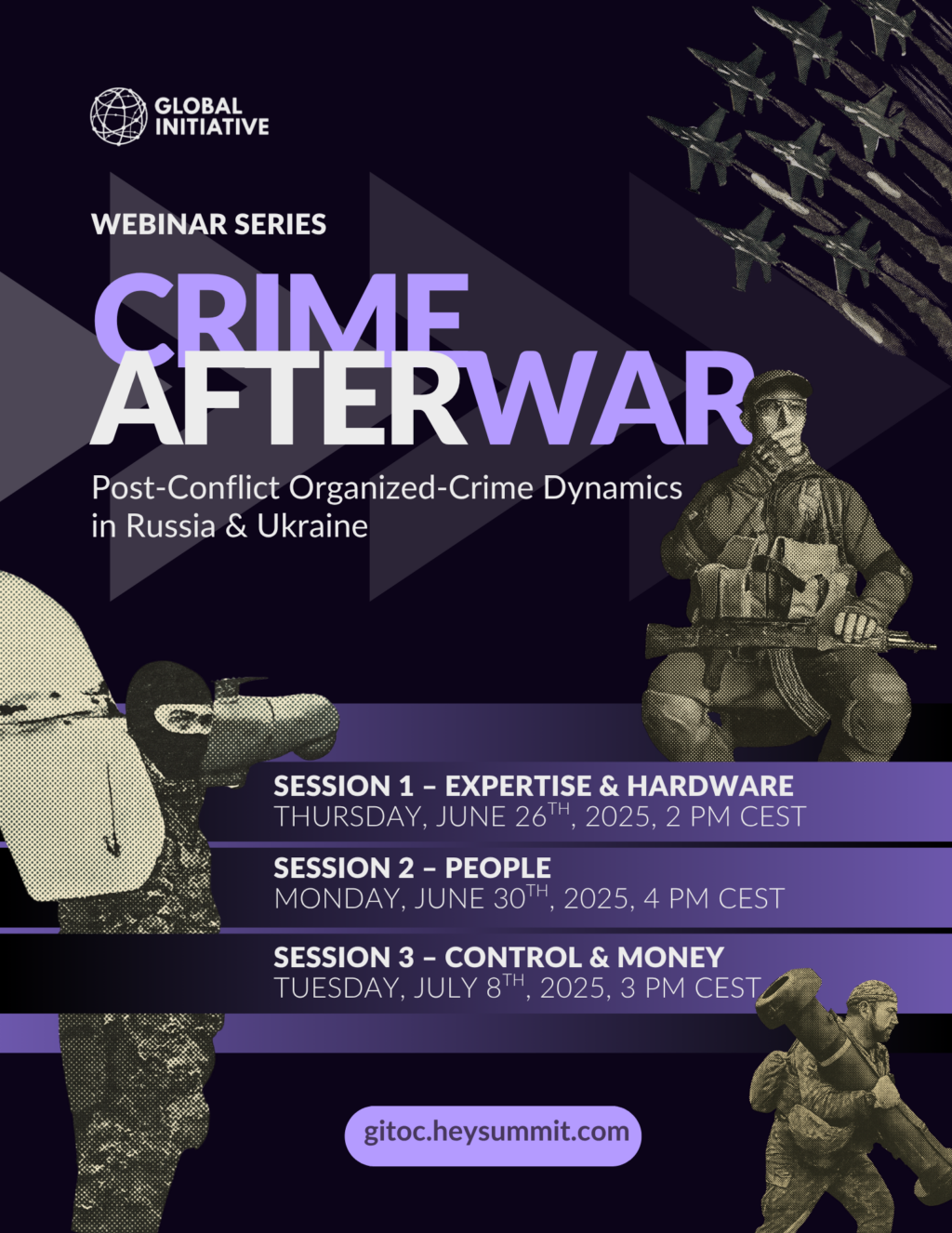
The webinars will convene between the months of June and July 2025, to discuss these five analytical pillars. Participants will learn how to:
- Identify key reservoirs of risk being generated by the conflict;
- Map the conflict geography in question, including Russia;
- Design mitigation strategies that match the speed and sophistication of illicit networks.
Session 1 – Expertise & Hardware (Thursday, June 26th, 2025, 2 PM CEST)
Weaponised skills, weaponised stockpiles
When the fighting stops, combat-tested drone pilots, hacktivists, and special-operations veterans from the conflict will return to civilian life, joined by serious illicit flows of lethal military equipment, from small arms to larger weapons systems. This webinar examines how the convergence of human expertise and physical hardware may shape the dynamics of post-war criminal markets, extending from Eastern Europe and Russia to sub-Saharan Africa and beyond.
Three questions to guide the debate:
- How do we prevent combat-experienced and skilled veterans being enticed into organized crime?
- Would a pan-European “Illicit Arms Dashboard” be an effective way to track post-conflict flows of arms and ammunition?
- How might novel drone capabilities reshape organized crime?
>>> REGISTER HERE
Session 2 – People (Monday, June 30th, 2025, 4 PM CEST)
Veterans, refugees & at-risk populations
Up to nine million Ukrainian veterans, millions of IDPs, and 6.9 million refugees face a daunting future in terms of employment, trauma, and reintegration. Russia’s criminal challenge may be even steeper, given its mass recruitment of convicts during the war. Once demobilized, this wave of veterans may have potentially seismic consequences for Russian society, far outstripping the violent fallout of the Soviet-Afghan War. The warning signs are already apparent.
Three questions to guide the debate:
- How can veteran-employment schemes outcompete criminal recruitment?
- What early indicators flag refugee or IDP descent into illicit economies?
- What are the lessons of past reintegration models – from the Balkans and Colombia to Vietnam and beyond – and are they transferable to the Russo-Ukrainian war?
>>> REGISTER HERE
Session 3 – Control & Money: (Tuesday, July 8th, 2025, 3 PM CEST)
Who profits in post-conflict Ukraine?
When martial law is lifted, life in Ukraine will change radically. Checkpoints will disappear and the curfew will cease—a development that will remove restraints on criminal enterprise. With the Black Sea potentially open once again for unfettered shipping, Odesa may once again resume its role as one of the region’s pre-eminent smuggling hubs, while smuggling may also be possible across the once-hot front lines – both of which may reshape transnational illicit flows. At the same moment, record-breaking reconstruction funds will begin to flow into the country. This webinar pairs the political economy of post-war crime-governance with the integrity of the financial pipelines that will rebuild the country.
Three questions to guide the debate:
- What indicators might confirm a healed Russo-Ukrainian criminal alliance?
- How can European law enforcement deal with a resurgence of Russian organized crime, including for political ends, given the lack of cooperation with Russia?
- What are the risks surround reconstruction, not just from corruption but also from money laundering, foreign vested interests and the purchase of political capital?
>>> REGISTER HERE
Subscribe to the GI-TOC Observatory of Illicit Economies in Eurasia mailing list to stay updated on our upcoming publications and initiatives.

